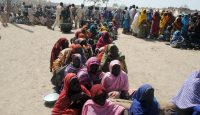
Tech alone won’t improve trust in Nigeria’s elections
Election technology has been deployed in a growing list of African countries, from the Democratic Republic of Congo (DRC) to Ghana and Kenya, raising hopes for improved transparency, integrity and trust in electoral democracy.
But technology alone is not a guarantee of credibility and security. It’s also a new frontier for election fraud amid concerns over vulnerabilities to hacking and manipulation. Complaints of interference by Ghana’s Electoral Commission (EC) and security issues with the DRC’s electronic voting system highlight how technology can lead to contested results and damage public trust.
On the eve of Nigeria’s most technologically advanced election, the security of its election infrastructure and data systems is now under intense scrutiny.… Seguir leyendo »



